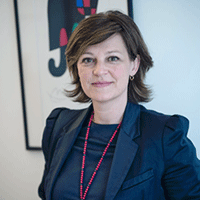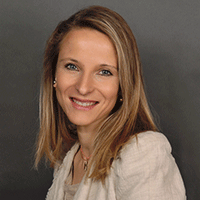
Fundraising in cryptocurrencies: a French-Swiss look at these legal, economic and technological innovations
Switzerland and France are two innovative countries in terms of regulation, with policies that support new technologies, fostering a boom in fintech companies and solutions. Among current news topics, one can mention the obvious appeal of the Swiss legal and political environment for the initiators of the Libra project – which certainly made a lot of headlines in 2019 – or the recent call by the Banque de France President for the launch of a digital central bank currency (crypto-euro). As far as new fintech players are concerned, Zurich-based SEBA Bank and Sygnum Bank were the first to obtain a Swiss banking license for cryptocurrency holders. SEBA Bank SA even recently spoke of international ambitions, declaring itself capable of “onboarding” (i.e. accepting after a successful due diligence process, mainly so as to comply with money laundering legislation) residents of more than 10 jurisdictions, including France. It is undeniable that fintech projects do not stop at borders or jurisdictions.
The particularly innovative tools and solutions provided by fintech technology may prove interesting and accessible to SMEs that are looking for investors to finance their projects or want to raise funds in a flexible and alternative manner to traditional financing, be it locally or even internationally.
If one has to look beyond borders, the keys to successful fund-raising lie in the project itself and the players involved, but above all on adequate anticipation of the legal and regulatory aspects.
When considering an Initial Coin Offering (ICO), a Security Token Offering (STO), or any other offering that involves a token (token, wedge) – or the issuance of digital assets – it is certainly worth checking in advance what authorizations, if any, need to be obtained and what are the possibilities and limitations. This article aims to provide a brief overview of the regulatory situation in Switzerland and France.
Switzerland, a pioneering country!
Switzerland was one of the first countries in the world to benefit from the positioning of its authorities in terms of regulations applicable to the fintech world.
Generally speaking, Swiss financial market law is based on a neutrality principle with respect to technology and analyses economic aspects according to the category of tokens, their purpose, and the “same risks, same rules” adage. As early as 2018, the Swiss Financial Market Supervisory Authority (FINMA) issued a practical guide to anticipate the authorities’ position by token category, clarifying whether it is subject or not to financial market law, in particular as regards money laundering provisions and securities trading rules. Switzerland, and Geneva in particular, with its legislative, regulatory and tax context, have thus distinguished itself as a host country for such projects.
The banking context is also particularly interesting for a project developer. Indeed, the Swiss Bankers Association has issued a guide to opening corporate accounts for blockchain companies.
On 27 November 2019, the Swiss Federal Council submitted draft legislation aimed at further improving the legal framework governing blockchain companies. The Confederation has decided to link this technology to existing securities law by creating specific securities rights (such as a virtual share entered in a register) while respecting private autonomy. It is not yet known when these legislative amendments will come into force.
The obligation for the issuer to hold an authorization or license is not systematic, but depends on the classification of the token:
– a payment token is a pure currency crypto, i.e. a means of payment against a traditional currency or a different cryptocurrency (e.g. Bitcoin);
– a utility token is a token for digital use or service and is based on blockchain technology (e.g. Golam);
– a security token represents the underlying property or assets and can be assimilated to a share, a bond or a derivative financial instrument;
– a hybrid token is a token that includes at least two elements of the former categories;
– a stable coin (e.g. Libra) is a type of cryptocurrency whose value is based on that of another asset (currencies, commodities, real estate or other transferable securities).
Once the qualification of the token has been carried out, the project organizer must determine whether an authorization is required. The FINMA guide provides useful information on this subject:
– payment tokens are not securities, but their issuance from Switzerland as a means of payment constitutes a service for payment transactions and is subject to the obligations of the Money Laundering Act (MLA);
– utility tokens are generally not regulated. If, however, they have an investment purpose, FINMA considers them to be securities, even in the case of pre-sales. As such, the legal and regulatory consequences of this classification must be taken into account;
– FINMA generally considers investment tokens as securities. Depending on the case, the issuance of digital tokens can imply an obligation to draw up a prospectus and their sale require dealer authorization;
– there are no specific regulations at the international level or in Switzerland for stable coins. Still, Swiss financial market law generally works on the above-mentioned principles. If the stable coin is pegged to a currency, it will in principle require a banking license (since the safekeeping of these tokens will be considered as a bank deposit). If it is linked to commodities or other securities, this may require authorization as a collective investment scheme.
In order for the project organizer to ensure that it does not violate current regulations, an analysis of legal and tax qualification is necessary. A preliminary application can be submitted to FINMA in order to clarify the regulatory treatment of the token and to secure the project from its onset. It is also advisable to examine the legal structure adapted to the project (such as a public limited company, a limited liability company), to check the process of acceptance of the funds transmitted by the investors (the “onboarding” discussed earlier) and their storage, to establish general conditions and, finally, to make sure of the future marketing strategy.
These regulatory elements are not to be taken lightly. In the event of illegal activity, FINMA may carry out an enforcement procedure that could lead to the outright termination of the project and company deregistration, not to mention the respective responsibilities of its leaders. This was sadly illustrated by the bankruptcy of Zug-based Envion SA, which had professionally accepted deposits from at least 37,000 investors without having the necessary authorization for such activity.
France, an innovative country!
In France, the PACTE law of 22 May 2019 instituted a new regime designed to encourage the development of ICOs by providing for the principle of an optional visa issued by the French Financial Markets Authority (AMF) in the context of a public offering of utility tokens. This optional French visa is a novel system from a global point of view – which notably does not exist in Switzerland. We find it particularly interesting and innovative, especially for products aimed at the general public.
A first ICO obtained its visa in December 2019, that of the company French-ICO, which has developed a platform for financing projects in cryptocurrencies. The AMF will verify the following points:
– the issuer of the tokens must be a legal entity established or registered in France;
– an information document (commonly known as a “white paper”) must be prepared in accordance with the General Regulation and instructions issued by the AMF;
– a procedure enabling the monitoring and safeguarding of the assets acquired in the context of the offering must be implemented by the issuer;
– the issuer of tokens must provide for a mechanism enabling it to comply with its obligations in terms of the fight against money laundering and terrorist financing.
The AMF examines the file and then decides whether or not to approve it. It should be noted that while the visa is optional and ICOs without a visa remain legal, only public offerings of tokens that obtained AMF approval may be canvassed by the public.
The AMF also monitors the issuer of the tokens during and at the end of the fund-raising phase, requiring the issuer to put out a press-release informing subscribers of the outcome of the offering, within two business days of its closing.
The AMF has introduced a number of provisions relating to the fight against money laundering and terrorist financing that the issuer must comply with (Articles L. 561-2 et seq. of the Monetary and Financial Code). To help issuers better understand their main obligations when offering tokens to the public, the AMF specifies that it will pay particular attention to the following aspects when examining applications for approval:
– the implementation of a risk classification to determine the risk profile of each subscriber and the level of vigilance measures that will be complied with;
– for any subscription exceeding EUR 1,000 or for any subscription, even if below that threshold, that is suspected by the issuer to involve money laundering or terrorist financing, the implementation of vigilance measures enabling the identification and verification of subscribers’ identity;
– regardless of the amount of the subscription, the implementation by the issuer of an internal organization involving procedures that make it possible to determine the profile of the relationship established with the subscriber and to manage any identified risks.
In the event of non-compliance with legal and regulatory provisions, criminal penalties are provided for. Issuers of tokens may entrust external service providers to perform, in their name and on their behalf, all or part of these procedures. This manner of regulating fundraising in cryptocurrencies may end up reinforcing the attractiveness of France in the blockchain ecosystem, not only because investors see it as very secure but also because the visa provides a competitive advantage to the project leader that obtains it. Last year was certainly rich in events and legislative developments, but the new digital decade is just beginning! |
 Géraldine Badel Poitras Avocate Associée Gillioz Dorsaz & Associés (Suisse) |
 Céline Moille Avocate Associée, Partner Yellaw (France) |
 Damien Cand Avocat Associé Gillioz Dorsaz & Associés (Suisse) |
